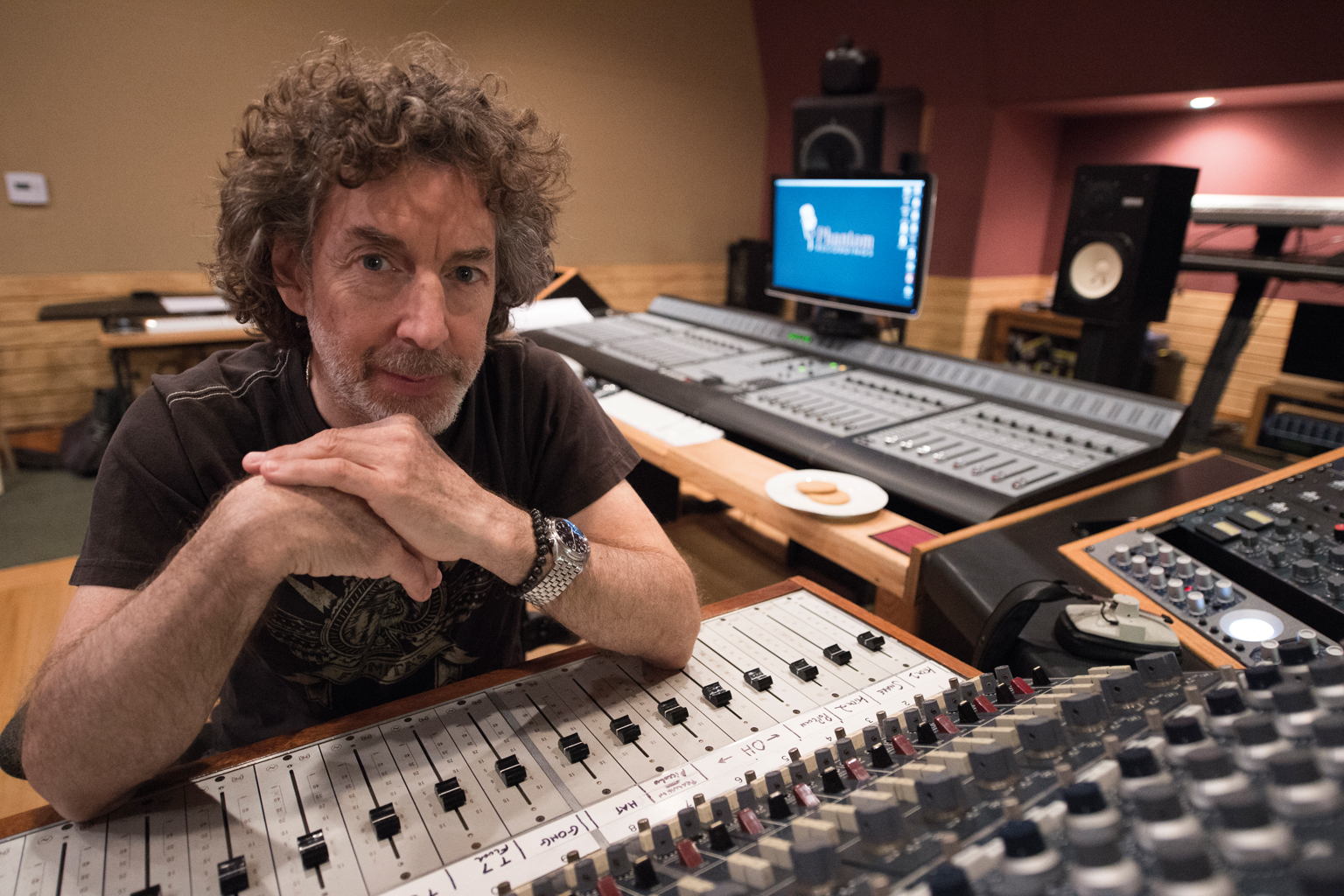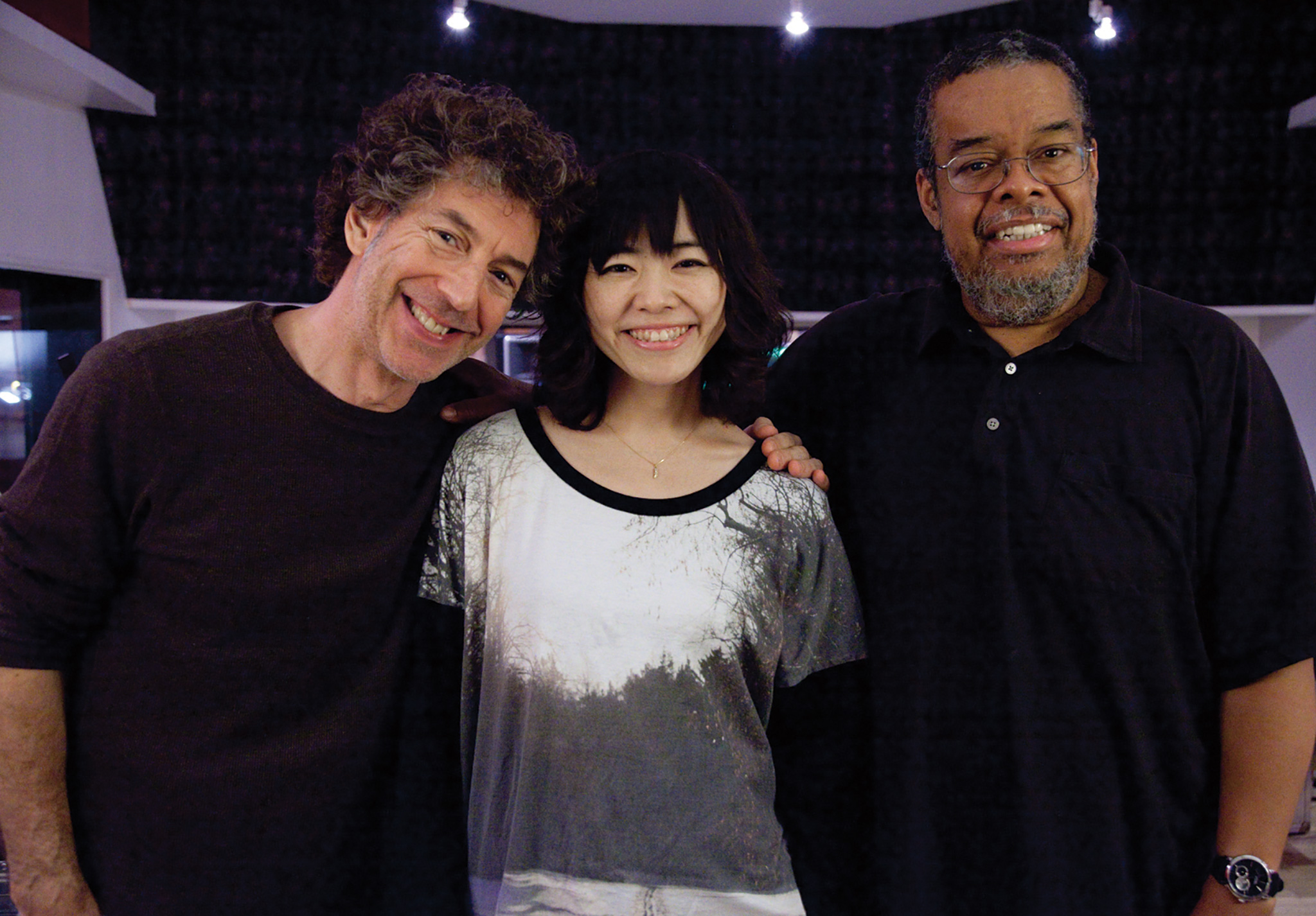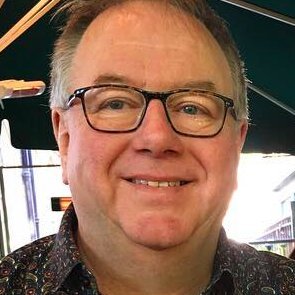Simon Phillips has enjoyed a remarkable and varied career as a drummer. After debuting in his father’s jazz group, The Sid Phillips Band, aged 12, he’s gone on to become an in-demand session player. He played with Mike Oldfield on his 1983 album Crises – where he took his first tentative steps in production – as well as joining forces with The Who, jazz giants like Stanley Clarke, and most recently with Japanese piano phenomenon Hiromi Uehara. In 2014 he ended a 22-year tenure playing with Toto to essentially concentrate on his own jazz-fusion project, Protocol. The group comprises Andy Timmons on guitar, Steve Weingart on keys and Ernest Tibbs on bass.
“I’ve always called instrumental tunes ‘songs’,” says Phillips with regard to his new album Protocol III. “That was probably a habit from way back when I was working with Stanley Clarke. He’d always say, ‘We’re gonna try this song now,’ and I thought that was kind of cool for an instrumental. I liked that.
“I view instrumentals from my background in production, doing so much rock’n’roll and pop music. To me a melody is something that can be sung. Instrumental melodies can be a little more expansive as they can cover a wider range of notes than a human voice can, but I still essentially treat the music as a song – even the more out-there, jazzy arrangements. It doesn’t change for me.”
It’s interesting that he describes Protocol’s eight new recordings as ‘songs’, as although they contain “tricksy” passages, which Phillips likes to be played with “a certain intensity”, they all carry a strong overall sense of melody and structure. This is reminiscent of some 1970s jazz‑fusion groups, like the UK’s Brand X, Larry Coryell’s Eleventh House and Return To Forever, who have re-emerged in recent years. Phillips notes that another 70s pioneer, John McLaughlin, has returned to fusion with 4th Dimension.
As a group, Protocol fit into this broad genre. But it’s not so much a nostalgia trip as a way of doing things. Phillips particularly likes the spontaneity of jazz fusion and is determined that it should be a major part of the band’s ethos. And rather than spending long stretches in the studio, he errs towards the more vital approach he picked up while working with jazz pianist Gil Evans – that every time you pick up an instrument, it must mean something. He points out that back in the early 70s, an Elton John or a David Bowie record would take two weeks to record and two to mix. But in an industry with a lot of cash swilling around, rock musicians started booking the studio for longer and longer, tending to lose focus in the process. This methodology seeped into the jazz world, but there was still the mentality that you were in and out in a few days.
“The musicians still had that attitude, to get out there, play and make it stick, y’know?” he says. “And there is a lovely urgency to the music. That’s how Weather Report records were made. I was speaking to Ndugu [aka drummer Leon Chancler] and [bass guitarist] Alphonso Johnson. Ndugu, he hardly knew how one song went, but got through it and then [keyboardist Joe] Zawinul said, ‘Great, let’s go onto the next one.’ It’s a very jazz approach.”
Another notable feature of Protocol III is that while it’s undoubtedly complex stuff with some striking solos, there’s space in the music, which allows the tunes room to breathe and makes the structure of the pieces more clearly defined. This is far from something that has happened by chance. “The hardest thing in the world is to play complex music simply, but if you can, you can come up with some great grooves and some great listenable music in the way it sits, the use of space.”
This is clearly an idea that fascinates Phillips and is a big challenge for a drummer of his technical ability. “It’s a discipline of how much do you really need to play,” he explains. “And this is kind of going towards the Steve Gadd approach – play as simple as you can, and when you think you’re playing as simple as you can, play even simpler. The listener ceases to really hear you as a drum kit – he’s listening to the music and what you’re playing is totally going with the music. That’s how I play.”

Phillips also takes risks. Some of his drum breaks are quite audacious, with cliffhanging pauses and unexpected changes of tempo. “You’ve always got to play with a sense of humour,” he laughs.
His compositional approach on Protocol III differs from 2014’s Protocol II in that on the latter, Phillips had a stockpile of material, some of it 15 years old, and he was genuinely unsure as to its quality, and not even sure how much he liked it.
“The band all heard it and went, ‘It’s not so bad,’ he recalls dryly. “And we started working on it. With everyone’s contribution, it worked out beautifully and I’m very proud of that record.”
For Protocol III he has written more specifically for the band, but in doing so he’s also expecting a contribution from each player.
“We went on the road and we learnt about each other and got our own sound. The whole point of it, like when I did any production and put a bunch of musicians in the room, is that rather than dictating, you’ve got to hand over the reins a little bit to capitalise on what those musicians can do, what they are good at doing, and let them have their say. Then you get the best out of everybody.”
The swaggering opening themes of Outlaw find the group erring more towards rock. “Funnily enough, Andy Timmons and I tried to put together a rock’n’roll band about 15 years ago and we worked on a bunch of music, one of which is Outlaw, which is basically blues,” Phillips explains. “I rearranged it so it was an instrumental song.”
Phillips produces these songs mainly on a piano, although he doesn’t really rate himself as a piano player. “I’m a piano owner,” he laughs. “It’s an instrument I can nearly play.”
He reflects that when he was a teenager, he was already a fixture on the London session player circuit, so rather than going to music college, he was out earning a living. Consequently, he often gets a tune in his head and then translates it to a keyboard, although it takes him a lot longer to voice the chords and harmonise the music than it would for a trained player. One composition on the album, Catalyst, came to him on a plane and he had to sketch it out note by note on his computer, then work on it in the studio at his LA home. Although he would like to have a greater facility in this respect, he admits that his more intuitive approach has enabled him to avoid compositional clichés and conventions.
“It’s a blessing and a curse,” he says. “The blessing is that I don’t know a lot of the rules so I break them continuously. I’ve had people say, ‘You can’t follow this major chord with a minor chord. You’re not supposed to do that.’ And I go, ‘I actually really like that form of writing.’ There are many songs I can pick out where that happened a lot in pop music and it’s very successful, but is apparently a faux pas in traditional composition, where you stay major or stay minor, and I disagree with that.”
As well as Protocol, Phillips also currently plays with pianist Hiromi and contrabass guitarist Anthony Jackson in The Trio Project, creating music that is lyrical but exceptionally complex. He says he loves making all types of music, but as someone with his playing chops, isn’t The Trio Project more of a challenge to relish?
“I always use that same concept: play it as simply as you can get away with, and with this music of Hiromi, it’s even more challenging as you’ve got the metres and you’ve got to play the changes.
“But I also love playing straightforward rock’n’roll songs. If I get the sound right, it feels great. About five years ago I did a short tour of Japan with Michael Schenker. It was the 30th year anniversary of The Michael Schenker Group album, the first record we made. And it was so much fun to go back and play that music with Michael and [bass guitarist] Neil Murray, and Gary Barden the singer. I don’t know if I could do it for too long,” he qualifies. “I’d get a little antsy, perhaps.”
Having just recorded a new album with Hiromi, Phillips will be touring in 2016 with both the The Trio Project and Protocol, and plans to make a live DVD of his group. He says he will also “probably crop up on a few albums here and there”. But if there’s any time left over, he’ll be writing the next Protocol album.
Given his background in pop and rock, and the fact he views even his most intricate compositions in the jazz-fusion vein as songs, would he ever consider using a vocalist in Protocol?
“No, because I’ve never been a lyric writer and if I were to go down that route and get a singer, I would form a band around them and it would be a rock’n’roll band,” he asserts. “There’s not much music I don’t like, but I really have an aversion to fusion singing. Some of it’s awfully cheesy. There are a few jazz singers around that are fantastic, but some try to get a little too instrumental in some of their melodies and then, oh boy! It’s the epitome of cheese to me.”
Protocol III is out now on Phantom Recordings. See www.simon-phillips.com for more information.
A Bit On The Side
Simon Phillips reveals all about his side project, Hiromi’s percussion, piano and guitar trio.

Simon Phillips has made three albums with Hiromi Uehara’s The Trio Project over the last five years and there’s a fourth in the pipeline. He first met Hiromi in passing at the Tokyo Jazz Festival in 2003 where Toto had been invited to appear – as the only rock band on the bill – by Herbie Hancock, and has little memory of the incident.
Fast forward to 2010 and a friend had sent him a YouTube link of Hiromi playing a piano duet with Chick Corea. “I watched it and thought, ‘Damn! That’s pretty amazing,’” he exclaims. “To see this young lady playing and holding her end up with Chick was just beautiful. Literally about a day or two later, the phone goes and it’s Hiromi’s manager and he says, ‘Do you know who Hiromi is?’ And I said, ‘You aren’t going to believe this but I was just watching some YouTube video of her. So yes, I do know who Hiromi is.’
“He said, ‘Hiromi would like you to play with [contrabass guitarist] Anthony Jackson on her new record [Voice],’ and I went, ‘Oh, okay. Do you know what I do? Like, a big rock’n’roll drum kit, lots of toms and cymbals, loud playing. Is that going to work with acoustic piano?’ He said, ‘She has put this together really carefully for you and Anthony,’ and I thought, ‘Wow!’
“We met in New York and she brought out these charts and I thought, ‘Yikes! I wonder if I’m ever going to get this.’ It was an immense challenge; it’s extremely tricky.
“What I didn’t realise is that she has an incredible power. She’s probably one of the loudest piano players I‘ve ever known. Match that with a nine-foot grand – it’s amazing how much louder it is than a seven-foot.”
Even so, playing with Hiromi necessitated a lower-volume approach, which in itself has offered Phillips a new challenge.
“I’ve had to get used to playing at half the level I used to play at and it’s been really cathartic to relearn how to play a lot of these rhythms so quietly, but really use the dynamics and play at that same level of intensity. That’s been an eye-opener.”

